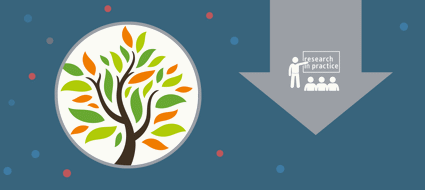The Practice Supervisor Development Programme (PSDP) which supports managers with the knowledge, skills and confidence to develop their supervision practice is so much more than experiential learning.
The accompanying project website is an absolute treasure trove of open-access materials that support the development of practice supervisors (and their managers) everywhere. As the lead on website resources, I’m incredibly proud of the way the PSDP website has become the go-to destination for practice supervisors developing their skills, knowledge, and confidence.
Recently, we have launched new resources on anti-racist practice. This incredibly important topic involves reflection and challenging conversations. It stresses that practice supervisors must analyse their own experiences of discrimination and privilege in order to work effectively towards equity and inclusion in all the work they do. Just launched is the fantastic practice tool, Exploring unconscious bias and racial microaggression in the workplace, which (as the author puts it) is a call to action. It offers strategies to open up discussion about how microaggressions and bias can affect relationships, resilience and practice – and how practice supervisors can positively change this for the better.
There is a fascinating discussion titled ‘Decolonisation: Reflections on White Supremacy’ on the Leading and influencing others in your organisation section of the website. Victoria Forson, a Children and Family Court Advisory and Support Service (CAFCASS) advisor and Gillian Ruch, Director of the Centre for Social Work Research and Innovation at the University of Sussex, engage in a conversation about how 'whiteness’ is reproduced in discussion and debate, and how we can start to challenge this.
In partnership with the main Research in Practice website, the PSDP has three resources supporting defensible decision-making. There is a main resource pack, some challenge questions for leaders and a CPD guide written for those with responsibilities for learning and development. Along with the Practice Tool on Defensible decision-making ‘with the child on your shoulder’, this suite of resources really support making the best decisions in the shifting, uncertain arenas we all work in.
As well as practice supervisors, the website contains lots of resources for managers of practice supervisors. This is very important – change in an organization can’t happen in a vacuum, but instead needs to happen at many levels. For instance, there is a very useful Knowledge Briefing titled Meeting the supervisory needs of practice supervisors – in this, there is essential information on creating not just individually positive supervisory relationships, but a culture of safe and effective supervisory spaces.
All practice supervisors have had to adapt to new ways of working since COVID-19 and this virtual and hybrid practice isn’t going to stop any time soon. There are forthcoming resources on virtual group supervision and emotional resilience in virtual and hybrid spaces, alongside an update to the Team as a secure base model – all about how we can create a secure base when we might not be co-located in an office anymore. Keep an eye out throughout July for these valuable additions to the website.
The PSDP website is available until March 2023 and we want to encourage everybody to make the most of these resources while they are still online. All Practice Tools and Knowledge Briefings are available as PDF, so any materials that you find particularly useful, please do download to your own system. View, download, share – and most importantly, use this incredible store of knowledge.




